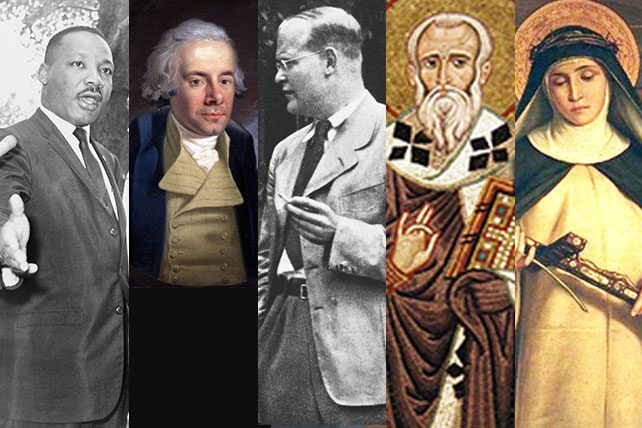3. Dietrich Bonhoeffer – The Pastor Who Defied Hitler
During the rise of Nazi Germany, many in the German church remained silent or compliant. Dietrich Bonhoeffer refused. As a Lutheran pastor and theologian, he helped lead the Confessing Church, a movement that resisted Nazi efforts to control Christian teaching and practice.
Bonhoeffer’s stand was more than theological—it was deeply practical. He helped Jews escape persecution, spoke out against state tyranny, and ultimately became involved in the resistance. His arrest and execution in 1945 cut his life short, but his writings, particularly The Cost of Discipleship, continue to challenge believers today. Bonhoeffer’s life was a vivid testimony to costly faith in the face of evil.
4. St. Ambrose of Milan – A Bishop Who Confronted an Emperor
In the 4th century, Ambrose, bishop of Milan, demonstrated the kind of moral clarity that reshapes the relationship between church and state. When the Roman Emperor Theodosius I ordered a brutal massacre in Thessalonica, Ambrose did the unthinkable—he publicly rebuked the emperor and refused him communion until he repented.
Ambrose’s bold stance helped define the role of the Church as a prophetic voice that must not compromise with worldly power. He taught that no ruler stands above God’s justice. His courageous confrontation of imperial injustice helped shape Christian thinking on moral authority and the responsibility of faith leaders to speak truth to power.
RELATED: Gospel Renewal in an Age of Deconstruction
5. St. Catherine of Siena – A Woman Who Spoke with Conviction
Though not ordained, Catherine of Siena was one of the most influential Christian voices of the 14th century. A laywoman, mystic, and member of the Dominican order, she became a powerful advocate for church reform and peace during a time of political division and spiritual corruption.
Catherine boldly wrote to popes and rulers alike, urging repentance, integrity, and unity within the Church. She famously traveled to Avignon to persuade Pope Gregory XI to return the papacy to Rome, an act that took remarkable courage. Her faith-driven leadership in an age when women’s voices were often ignored reveals the unique strength of conviction unbound by title or office.
Faith leaders taking a stand – How One Voice Can Stir a Generation
From ancient empires to modern democracies, the story remains the same—faith leaders taking a stand have the capacity to shape both church and culture. Whether confronting emperors, legislating justice, or marching in the streets, their courage was not rooted in political ambition but in gospel truth. Their lives continue to call believers today to listen for God’s voice and act boldly for what is right, no matter the cost.

